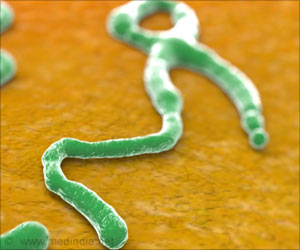Health authorities in the US has revealed that two of the American missionaries who were infected with Ebola in Liberia have made a full recovery and have left the hospital.

The pair were given experimental drugs before being airlifted back to the United States, where they have been treated at a hospital in Atlanta for the last three weeks.
"The discharge from the hospital of both these patients poses no public health threat," said Bruce Ribner, director of Emory Hospital’s Infectious Disease Unit.
The news of their recovery came as west African countries intensified their efforts to contain the worst-ever outbreak of the disease ahead of the arrival of the UN’s top Ebola official in the region.
Liberia, which has seen the biggest toll in this epidemic with 576 deaths, has witnessed chaotic scenes in recent days following a surge in the number of patients succumbing to the hemorrhagic fever.
The Red Cross said on Thursday that the crematorium in the capital Monrovia is struggling to deal with the dozens of bodies being brought in each day.
Her comments came after a similarly tumultuous day in the capital on Wednesday, with violence erupting in an Ebola quarantine zone after soldiers opened fire and used tear gas on protesting crowds.
- ’Utmost rigour’ -
Guinea, where the outbreak first appeared earlier this year, has also shown signs of stepping up its efforts, sending more than 100 doctors and volunteers to its borders with Sierra Leone and Liberia on Thursday.
The move to monitor people crossing the border for symptoms is part of a plan introduced under Guinea’s state of emergency, which was declared earlier this month in an effort to stop the spread of the virus that has killed 396 people in the country to date.
The death toll from the epidemic now stands at 1,350 after a surge of 106 victims in just two days, most of them in Liberia, according to the World Health Organization (WHO).
The UN’s new pointman on Ebola arrived in the region on Thursday for a visit aimed at shoring up health services there, many of which have only recently emerged from many years of devastating conflict.
David Nabarro, a British physician appointed last week by UN Secretary Ban Ki-moon, said he would focus on "revitalising the health sectors" in affected countries.
Nabarro was due to visit Monrovia, Freetown, Conakry and Abuja as part of his overall mission to coordinate the global response to the crisis.
Authorities have been hampered in their fight against Ebola by the death of several top health officials and numerous frontline doctors to the virus.
A doctor who treated Nigeria’s first Ebola patient was named among the dead on Tuesday, taking the death toll in Africa’s most populous country to five. Other countries have also lost top health professionals.
- ’Encouraging signs’ -
Fears that the virus could spread to other continents have seen flights to the region cancelled, and authorities around the world have adopted measures to screen travellers arriving from affected nations.
South Africa on Thursday issued a ban on non-citizens travelling from Guinea, Liberia and Sierra Leone, which it labelled "high risk countries."
But despite the rising death toll, WHO spokeswoman Fadela Chaib this week noted "encouraging signs" in Nigeria and Guinea, where prevention measures and work to trace lines of infection were starting to take effect.
The Nigerian outbreak has been traced to a sole foreigner, a Liberian-American who died in late July in Lagos. All subsequent Nigerian victims had direct contact with him.
In Sierra Leone, where 374 people have died, the outbreak has also been traced back to one person: a herbalist in the remote eastern border village of Sokoma.
No cure or vaccine is currently available for Ebola, which is spread by close contact with body fluids, meaning patients must be isolated.
Given the extent of the crisis, the WHO has authorised largely untested treatments -- including ZMapp and the Canadian-made VSV-EBOV vaccine, whose possible side effects on humans are not known.
Three doctors in Liberia who had been given the experimental US-made ZMapp are reportedly responding to the treatment.
Source-AFP
 MEDINDIA
MEDINDIA



 Email
Email







